Crochet is an incredible skill that helps so many people in a number of ways. It can help those struggling with mental health issues and can also be an incredible tool for folks on the autism spectrum.
Every autistic person’s experience is different and each individual has varying needs, abilities, and skill sets. Nevertheless, crochet might just be a tool that can help autistic folks regulate, stim, and even be a source of income.
As an autistic person myself, I want to share my own use of crochet in my life, as well as answer some questions about why crochet can be so beneficial to autistic folks.
Benefits of Crocheting as an Autistic Person
I’ve been crocheting since the ages of 5 or 6 and knitting since my teen years. Throughout high school and college, I was more invested in my knitting, but still always held a deep love for crochet and have returned to it as my main craft over the last few years.
Although I wasn’t diagnosed with Autism till my late 20s, I have been using both crochet and knitting as a tool for myself almost my entire life.
Both crochet and knitting are incredibly repetitive, allowing your hands to move non-stop, which is a wonderful form of stimming for many autistic folks.
Stimmingis a repetitive movement or vocalization used to help calm and regulate an individual. Stimming most often occurs when under stress, experiencing intense emotions (both positive and negative), and/or when in an overstimulating environment.
Crochet is a wonderful form of stimming as it not only gives you repetitive movement but also engages your senses in the touching of yarn and hook, which can help soothe and calm your mind.
I was that student who brought my crochet and knitting to class and would work on my projects throughout lectures. Having my hands busy allowed my mind to focus on what was being taught while also giving me a conversation starter if classmates approached me.
Crochet also gave me predictability when in new environments, while also allowing me to avoid making eye contact as I focused on my work.
Even to this day, when in meetings, therapy, or simply catching up with a friend, you will almost always see me with a project in hand.
Although it may distract some people to multi-task in this way, for me and many other autistic folks, having our hands busy allows our brains to focus and our bodies to be regulated and calm enough to appreciate what is happening around us.
Other Perks of Crocheting for Autistic Persons
Only around 10% of people with autism are able to join the workforce and work a typical 8-hour day. For many autistic people, this simply isn’t possible due to our range of needs and abilities.
However, crochet can become a source of income for many autistic folks. Being able to crochet regardless of what is going on around us gives us the ability to focus and finish projects at a more consistent rate. In turn, we can sell online or at fairs, festivals, farmer’s markets, and more.
Crochet can also become a special interest, allowing us to develop a deep knowledge of the craft and enjoyment in spreading that knowledge to others.
This makes autistic folks with a special interest in crochet perfect candidates for writing crochet blogs (like myself), informational pieces, and even teaching classes.
Crochet Items for Autistic Folk
Explore the remarkable world of crochet as a therapeutic and empowering skill for individuals on the autism spectrum with these patterns!
This free and easy slug fidget pattern is done as a youtube tutorial and is so quick to whip up. Perfect for keeping restless hands busy!
A Hexaflexagon is such a fun toy to play with, flipping each color into itself to create new patterns. Now you can make your own with this simple pattern or make the cubed version!
With marbles inside, these fidget snakes are great for fidgeting back and forth and fit nicely in one hand.
If you like the marble snakes but want a toy with more purpose, check out these marble mazes you can make yourself! Guiding the marble through the lines can be so meditative and calming.
Make this adorable Octopus fidget toy that is reversible for hand movement, and also has pop-it's on the tentacles! You can even make one side of the octopus looking cheerful and the otherside distressed to help with non-verbal communication when necessary.
For the individual who needs more stimulation and doesn't mind a larger toy, you can create this fun and nifty fidget blanket that offers multiple forms of stimming on it. Some autistic people may even love the comfort of a blanket, even if small.
You can create a smaller and wearable version of a fidget blanket with this fiddle muff that can be worn on the arm. Not only is it cozy for when cold, but is a subtle way to always have your fidget toys (quite literally) on hand.
Keychains are a great way for making a discreet, small and traveable fidget toy you can always have on hand. Try something as simple as this beaded keychain toy, or go a bit larger with these fun fidget friends with spiraling tentacles!
Pop-up plushies are not only adorable, but so fun to make and play with! With nature themes like this mushroom, or animal plushies like this rabbit in a hat, pop-up toys give you something to keep busy and regulated when stressed.
This spiral scrunchy looking toy allows you to have an infinite loop you can pull through the hole in a never ending cycle. Plus, with varigated yarn, it is beautiful to look at!
This Autism Awareness blanket is the perfect example of the type of support the autistic community needs and loves. With infinity loops, hearts and lots of beautiful rainbow colors, this pattern is a lovely tribute of support to the autistic community.
The Autism Creature was birthed on reddit, so of course it makes sense for this pattern to also be on reddit.

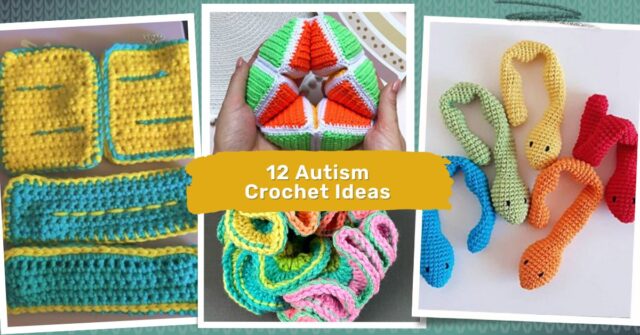
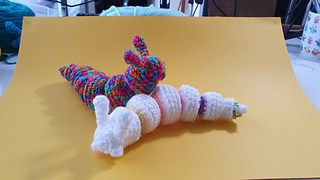
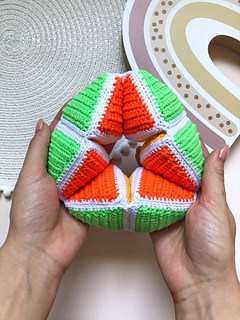
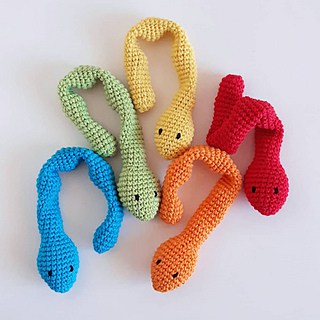
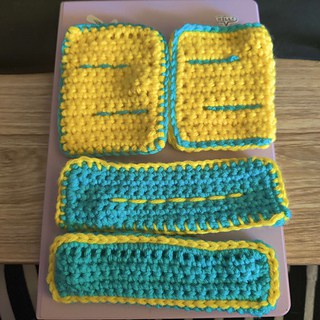
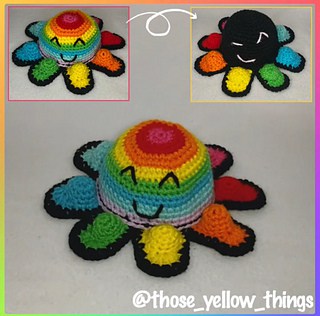
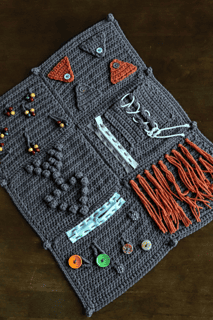
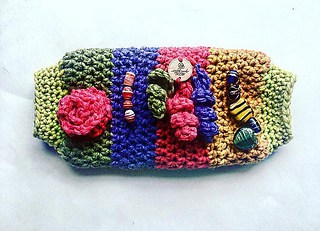
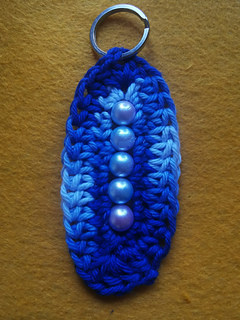
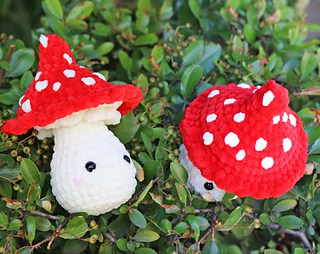

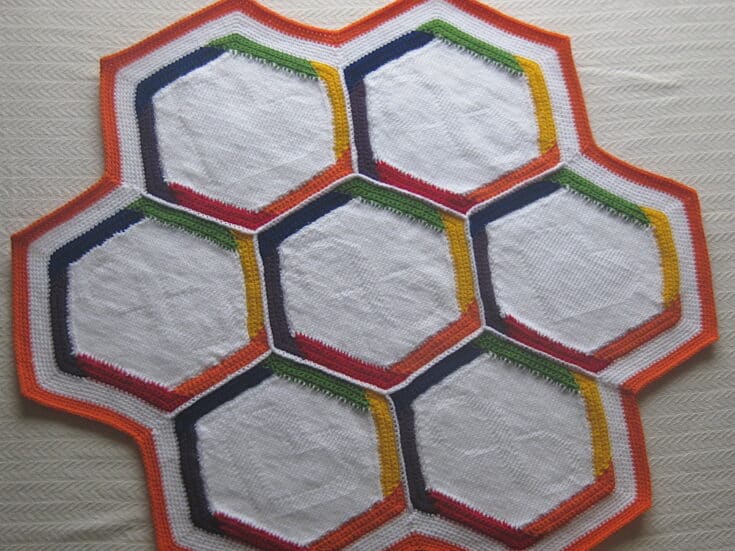
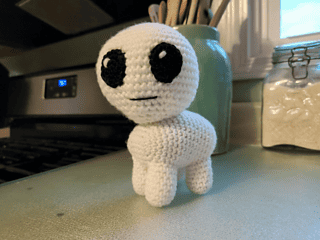
Thankyou for this story Kathryn, I’m having an emotional day, so this article was especially welcome.
This is very interesting. My eldest child was diagnosed with Asperger’s so I can understand, from what I have learned about Asperger’s, how Linda finds crochet so therapeutic. It never occurred to us to try knitting or crochet as an ‘Aspie’ tool before but as soon as I read Linda’s story, I thought, “What a good idea!” It is perfect.
Thanks for continuing to share people’s stories here, Kathryn. xx
Thank you Kathryn and Linda for sharing this with us. I am going to share this with a number of parents of children living with autism, I think you are sending a really good message for them. All the best to you both :)
I’m pretty sure I have undiagnosed asperger’s, I’m 41, American, unemployed, and I live with my parents, I just learned how to crochet and I love it. (Along with photography, drawing and writing) I’m already obsessed. Like usual i don’t know how to end this…or whether or not I’m going to send this. But…